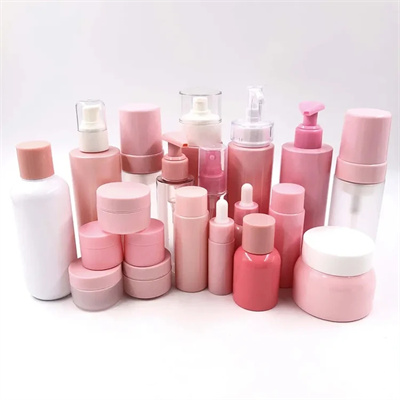Can Cosmetic Containers Be Recycled?
November 30, 2024
In today's environmentally conscious world, the question of whether cosmetic containers can be recycled is becoming increasingly important. With the rise in awareness around sustainability, consumers are seeking ways to reduce their carbon footprint even in their beauty routines. This blog post will explore the recyclability of cosmetic containers, the implications of empty cosmetic containers, and insights into cosmetic containers wholesale.
Understanding Cosmetic Containers
Cosmetic containers come in various materials, including glass, plastic, and metal. Each type of material has different recycling protocols, making it essential for consumers to understand how to properly dispose of their cosmetic containers.
The Recyclability of Cosmetic Containers
The recyclability of cosmetic containers depends primarily on the type of material used and the local recycling regulations. Here's a breakdown:
1. Plastic Cosmetic Containers:
Many cosmetic containers are made from plastics like PET (Polyethylene Terephthalate) or HDPE (High-Density Polyethylene), which are widely accepted for recycling. However, even within plastic, the recycling capabilities can vary depending on the local facilities. It’s important to rinse out any leftover product before recycling to avoid contamination.
2. Glass Cosmetic Containers:
Glass containers are generally recyclable and can be processed multiple times without losing quality. Brands often use glass for their high-end cosmetics. However, consumers should ensure that the glass is clean and free from labels, as this can also affect the recycling process.
3. Metal Cosmetic Containers:
Metal containers, such as those made from aluminum or tin, are typically recyclable. Like glass, they can be recycled infinitely with minimal loss in quality. Always check with local guidelines for specifics regarding cleaning and labeling.

Managing Empty Cosmetic Containers
The empty cosmetic containers left after use pose a challenge in their disposal. Many consumers are unsure whether they can simply throw them away or if they should seek recycling options. To promote sustainability, here are a few steps to follow:
- Check Local Recycling Guidelines: Always consult your local recycling authority to understand which types of containers they accept.
- Rinse Before Recycling: Rinsing out containers is crucial, especially for products like cream or gel, which can cause contamination in recycling streams.
- Reuse When Possible: Consider repurposing your empty cosmetic containers for storage or creative projects, extending their lifecycle beyond single use.
Cosmetic Containers Wholesale: A Sustainable Choice?
For businesses looking to source cosmetic containers wholesale, it’s essential to prioritize suppliers that focus on sustainability. Many manufacturers now offer eco-friendly cosmetic containers made from recyclable materials, allowing brands to minimize their environmental impact. Choosing these options not only adheres to sustainable practices but also appeals to a growing demographic of eco-conscious consumers.
In conclusion, cosmetic containers can indeed be recycled, but it is essential to know which materials are accepted in your local recycling program. By being mindful of how we manage empty cosmetic containers, we can all contribute to a more sustainable future. Whether you are a consumer or a business sourcing cosmetic containers wholesale, there are opportunities to make decisions that positively impact our environment. Always remember to check local guidelines and explore reusable options, ensuring that your beauty routine aligns with sustainable practices.
By spreading awareness about the recyclability of cosmetic containers, we can all play a part in reducing waste and promoting a greener planet.
Call to Action
Are you making the most out of your cosmetic containers? Share your recycling tips or experiences in the comments below! And if you’re in the market for cosmetic containers wholesale, consider selecting eco-friendly options to support sustainability in the beauty industry.
